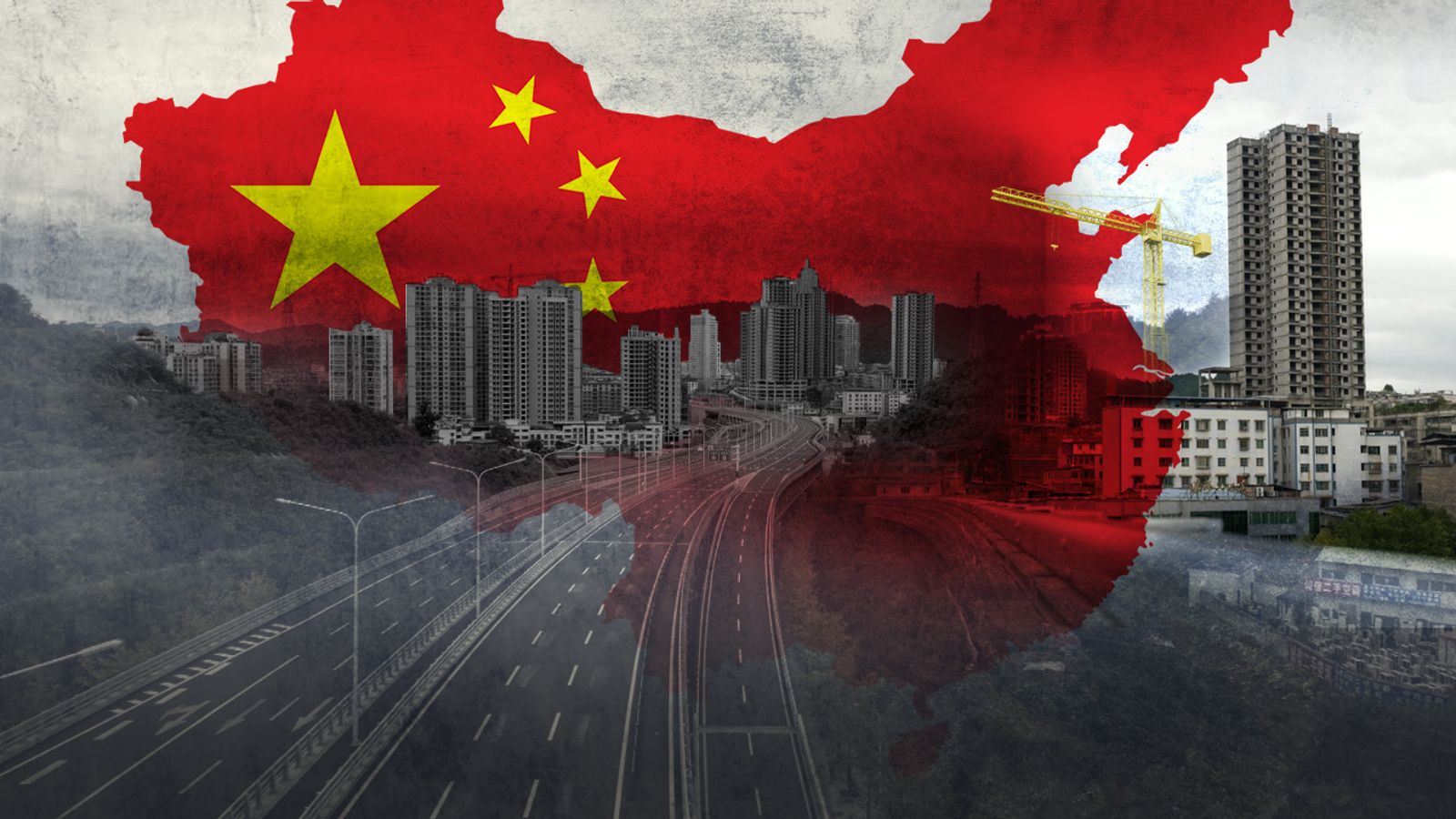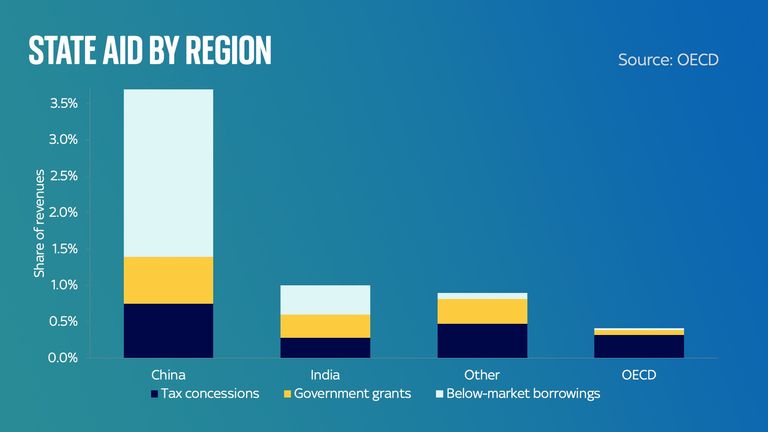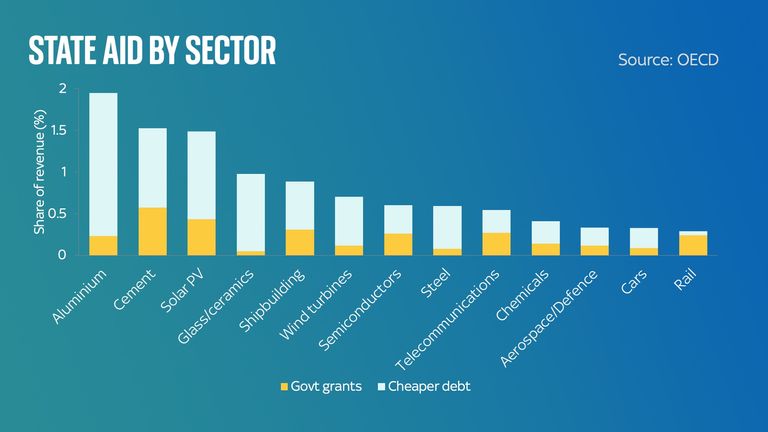Chinese companies receive far more state support – making it harder for Western businesses to compete, data suggests


Chinese manufacturers receive nine times more government support than their Western counterparts, according to calculations from the Organisation for Economic Co-operation and Development (OECD) which help explain the country’s complete dominance in so many sectors, from solar panels and batteries to steel.
The figures produced by the OECD show that Chinese businesses benefit from government subsidies equivalent, on average, to 3.7% of their revenues. This compares to average state aid of only 0.4% of revenues for countries in the rich world.
Money latest: Bitcoin suffers nightmare month
The data are a critical part of the explanation for Chinese dominance in certain fields, not to mention part of the explanation for why the UK has seen its manufacturing base shrink so rapidly in recent years.
While China provides large amounts of assistance to key sectors, including its solar photovoltaic sector and base metals producers of aluminium and steel, UK governments have for decades tended to be considerably less interventionist. The upshot is that the UK has seen many plants closing, unable to compete with cheap imports.
Up until now there has been no definitive measure of how much those cheap imports have been influenced by what economists call “state aid” – whereby governments help their companies.
In part this is because measuring state aid is fiendishly difficult.
At its simplest, it can take the form of direct grants from governments, to support a company or help it to build a plant. However, some countries are less transparent than others about these grants. But arguably more important are special low taxes sometimes charged to specific companies or sectors, and lower-than-market interest rates which are sometimes offered to favoured firms.

Keep up with all the latest news from the UK and around the world by following Sky News
The OECD analysis, which has yet to be published as a formal report for widespread release, is the most comprehensive attempt yet to quantify those various types of state aid and compare different regions to each other.
Advertisement
Its finding, that China provides significantly more state aid for its manufacturers, is unlikely to come as a surprise – but it provides a statistical backbone for arguments that the global trading system does too little to confront these interventions.

It also finds that the amount of state aid varies significantly from sector to sector, with aluminium smelters, cement manufacturers and solar cell plants receiving most assistance. However, the report pre-dates the rapid increase in Chinese production of batteries in recent years.
Under Joe Biden, the US has introduced a host of measures, from the CHIPS Act to the Inflation Reduction Act, designed to provide subsidies for those making semiconductors and green technology in the US.
However, even after those interventions, total state aid in the US is still likely to be short of the Chinese total.